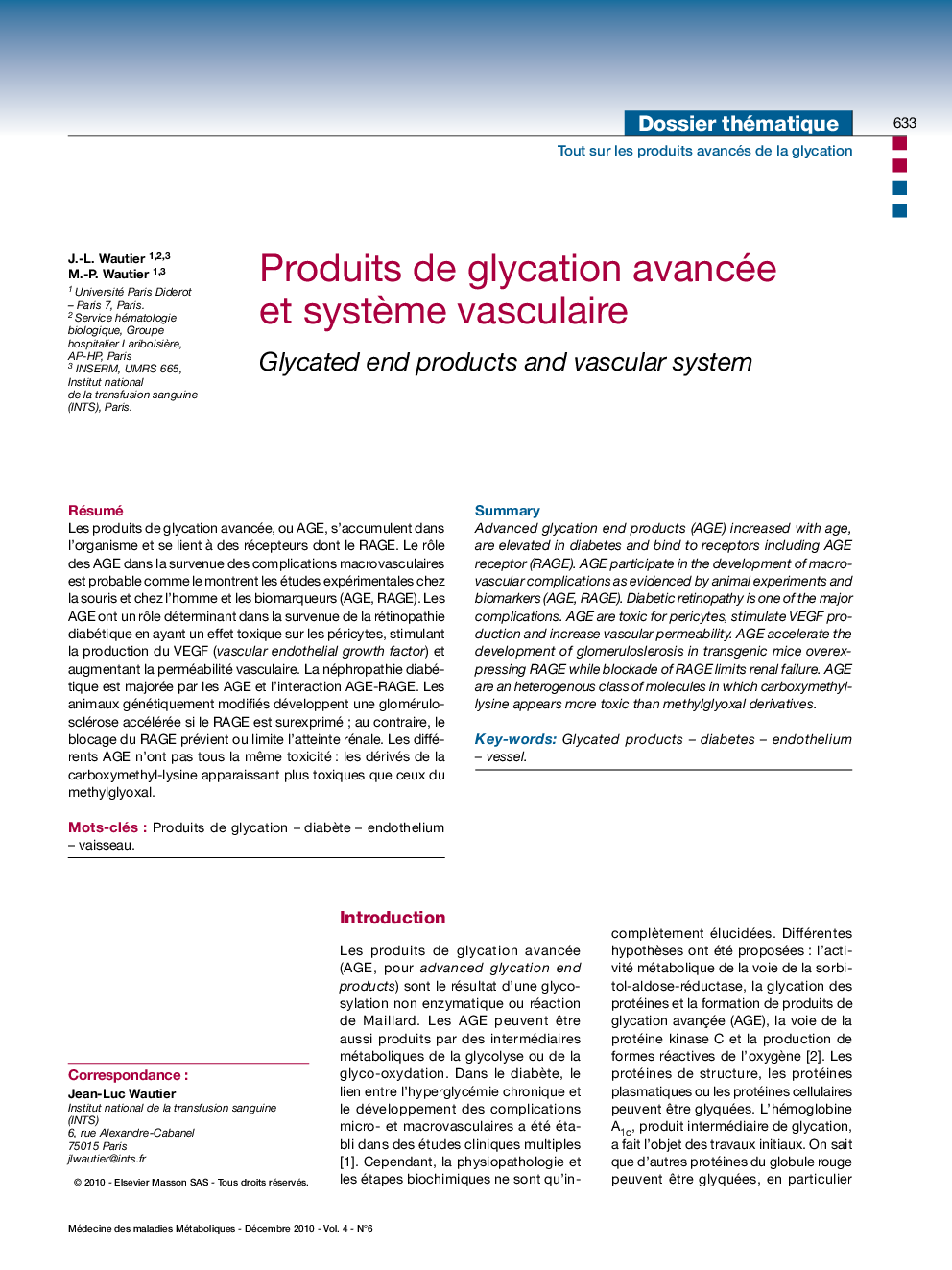| Article ID | Journal | Published Year | Pages | File Type |
|---|---|---|---|---|
| 3275629 | Médecine des Maladies Métaboliques | 2010 | 4 Pages |
Abstract
Advanced glycation end products (AGE) increased with age, are elevated in diabetes and bind to receptors including AGE receptor (RAGE). AGE participate in the development of macrovascular complications as evidenced by animal experiments and biomarkers (AGE, RAGE). Diabetic retinopathy is one of the major complications. AGE are toxic for pericytes, stimulate VEGF production and increase vascular permeability. AGE accelerate the development of glomeruloslerosis in transgenic mice overexpressing RAGE while blockade of RAGE limits renal failure. AGE are an heterogenous class of molecules in which carboxymethyl-lysine appears more toxic than methylglyoxal derivatives.
Keywords
Related Topics
Health Sciences
Medicine and Dentistry
Endocrinology, Diabetes and Metabolism
Authors
J.-L. Wautier, M.-P. Wautier,
